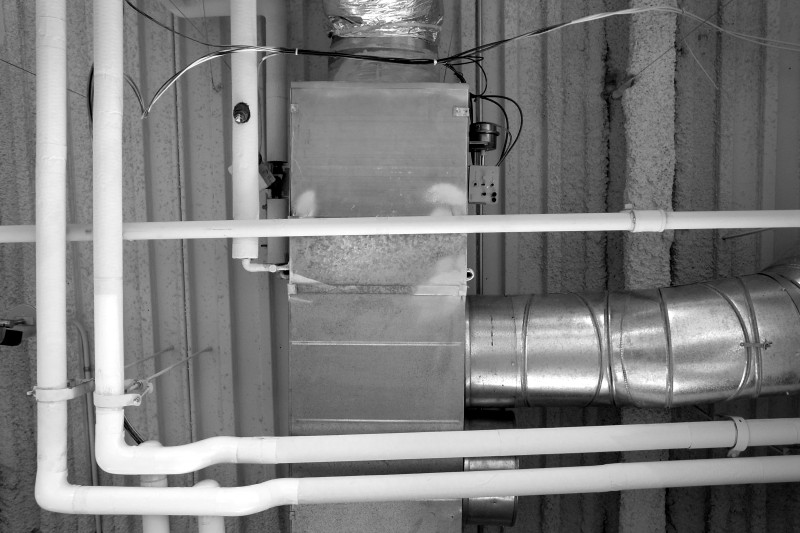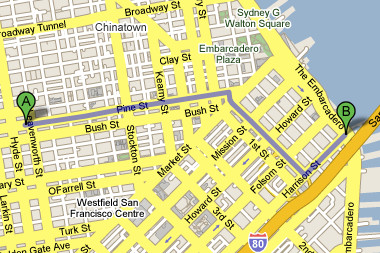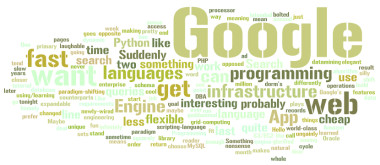I work in an office. In the city. OMG.
This is a view I’m guessing very few people ever experience. I call it, The Reverse Hills Bros. This is not exactly the new view from my desk—I’ll post that in a day or two.

It’s hard not to blog about work. It’s hard to blog about work.
This is a view I’m guessing very few people ever experience. I call it, The Reverse Hills Bros. This is not exactly the new view from my desk—I’ll post that in a day or two.

Today was my first day working in a “real” office in the “big” city. Which means the internet was slow and the air conditioning was always on. I spent half the day sitting in this white noise cone of silence before it grew into the infernal screeching you’re about to experience. After which I moved to a new desk and the HVAC guys came around and got the situation under control. But I couldn’t help myself from recording the aural experience of my first day in the new office.

This post originally appeared on White Noise Lounge.
It must be pretty bad when your dad asks if everything is ok, because you haven’t been posting as frequently to your blog. No big secret, just been busy. Mostly I’ve been trying to focus on a project at night which sort of eats up the time I would otherwise be blogging—and it puts my head in a decidedly non-bloggy space. I made some good progress tonight, so I thought I’d take a break.
Nothing top secret there either. Just a lil’ photo gallery web app to replace the venerable Gallery. Something I’ve been meaning to work on forEVER. Just finally had a flash of inspiration on the particular quirky angle I wanted to take, and the feeling of technical prowess that I could actually approach a project like that from scratch. God, is it ever hard starting from scratch. I have a newfound appreciation for web frameworks (like Rails and Django) even though I’m not using one (or trying to write my own).
It’s probably also true that I sort of burned myself out trying to move all my data to my newer but heavier laptop. Oh well, now I’m just eagerly awaiting my new X200 to arrive, to replace both of my laptops.
Surprisingly big life change coming up on Monday: I’ll be working in San Francisco! Monday is Federated Media’s first official day in our new location, which kind of feels like a combination between moving to a new city and starting a new job. It’s definitely a significant upgrade in both respects. And I’ll also be leaving Sausalito behind, the place I’ve worked for the last two years and two months. In particular, my commute will change from a 8 mile, somewhat harrowing journey over the Golden Gate Bridge on my Vespa every day to a less than 2 mile walk/bike/scoot through the city. I’m totally stoked.

Programming languages by themselves aren’t very interesting to me. I’ve never been a language geek in that sense. One thing however that is interesting to me, and has been for some time, is the web. Something changed for me in the fall of 1998, towards the end of the first semester of my freshman year. That was when my dorm’s newly-wired Ethernet was switched on. Suddenly the internet wasn’t something I had to go stand in a line at the library in order to get access to. Suddenly my computer wasn’t just a glorified word processor.
Where programming languages are means for me to get closer to the web, I’ve learned programming languages.
This is probably why PHP, as ungainly and homely as it is, has been such a natural fit over the last several years. It is programming language intended squarely for the web. Its primary goal is making web pages more dynamic, more programmable. Only later were command line features bolted on, quite the opposite of its more elegant scripting-language counterparts (Perl, Python, and Ruby), which tend to deal with the web after the fact.
I didn’t quite realize it at the time, but at work I’ve been meaning to do some datamining. Or at least that’s what I’m going to call it here. My requirements are simple. I want my database schema to be flexible and expandable, and I want my queries to be ad hoc and fast. They don’t have to be Google Search fast, but fast enough that most queries take less than a minute to run. And I want to do this for cheap. None of that Oracle, DBA, enterprise, 6 month build cycle nonsense. I want flexible, fast, and cheap, and I don’t want to have to choose two. I mean if Google Search can return infinitely unique result sets in less than two tenths of a second, why can’t I?
And why does MySQL get so goddamned slow when it gets over a few million records?
If Google can do it why can’t I? This is the paradigm shift. Maybe I can use Google to mine my data. Not Google the company or Google the search engine, but Google the infrastructure. This is what makes search plays like Cuil seem so laughable. It’s not the algorithm silly, it’s the infrastructure. If I were ever to work for Google, I’d prefer it to be in operations, as opposed to engineering. That’s where all the fun is. I digress.
The whole point of this post is to inform you, dear reader, that tonight I went through the Google App Engine Hello, World! tutorial. And I’ll probably start using/learning Python. The blogosphere’s initial reaction to Google App Engine was lukewarm. Basically Amazon S3/EC2-lite. Or something like that. But as of yesterday, or sometime last week, I’m seeing things differently. Like maybe Google App Engine is simply a way to use Google’s world-class, paradigm-shifting, grid-computing infrastructure without actually having to get a job there. That’s pretty cool. We’ll see how it goes.

A neat visualization of the work that the Federated Media Tech team (including me) has done over the last 14 months:
I put this together this afternoon using code_swarm. Andy uploaded it to Vimeo so the world can see: FM has tech!
Here’s a little explanation of what you are seeing:
In our case, red dots are PHP files, blue dots are HTML, CSS, and JS files, and turquoise dots are media files.